

University of Wyoming USA

Director at Charles Sadron Institute France
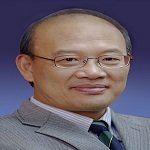
Peking University China

University of Almeria Spain

University of Porto Portugal
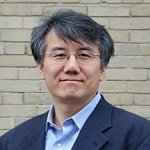
University of Toronto Canada

University of Algarve Portugal
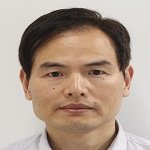
University of South Australia Australia

University of Ioannina Greece

Thomas J. Webster’s (H index: 126) degrees are in chemical engineering from the University of Pittsburgh (B.S., 1995; USA) and in biomedical engineering from RPI (Ph.D., 2000; USA). He has formed over a dozen companies who have numerous FDA approved medical products currently improving human health in over 30,000 patients. His technology is also being used in commercial products to improve sustainability and renewable energy. He is currently helping those companies and serves as a professor at Brown University, Saveetha University, HebeiUniversity of Technology, UFPI, and others. Dr. Webster has numerous awards including: 2020, World Top 2% Scientist by Citations (PLOS); 2020, SCOPUS Highly Cited Research (Top 1% Materials Science and Mixed Fields); 2021, Clarivate Top 0.1% Most Influential Researchers (Pharmacology and Toxicology); 2022, Best Materials Science Scientist by Citations (Research.com); and is a fellow of over 8 societies.Prof. Webster is a former President of the U.S. Society for Biomaterials and has over 1,350 publications to his credit with over 55,000 citations. He was recently nominated for the Nobel Prize in Chemistry. Prof. Webster also recently formed a fund to support Nigerian student research opportunities in the U.S.

Prof. T. S. Chung is a Jade Mountain Chair professor at the Graduate Institute of Applied Science and Technology of NTUST, Taiwan. Before joining NTUST, he was a Provost’s Chair Professor at the ChBE department of NUS in 2011-2021. He became a Fellow in the Academy of Engineering Singapore in 2012 and received the Underwood Medal from IChemE UK for exceptional research in separations and Singapore President’s Technology Award in 2015. He received Distinction Award in Water Reuse and Conservation from IDA in 2016.He was ranked as No. 6th in Chemical Engineering by “the top 2% scientists in the world” published by Stanford U. in 2022 and 2023. His H-index = 132 (Scopus) or 153 (Google Scholar) (July 4, 2024).
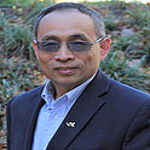
Dr. Hai-Feng (Frank) Ji is current a professor of Department of Chemistry, Drexel university. His research interests focus on polymers, MEMS devices, nanomaterials for energy and environmental applications, drug discovery, nanopillars and phosphene for energy applications, and surface chemistry. He is currently a co-author of 220 peer-viewed journal articles and book chapters. He has an H-index of 43. He is an editorial board member of several chemistry journals.
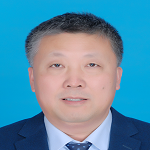
Changyou Gao graduated from Department of Chemistry, Jilin University to get his Bachelor degree (1990), Master degree (1993) and Ph.D of Polymer Chemistry and Physics (1996). From 1996 to 1998, he worked in Department of Polymer Science and Engineering of Zhejiang University as a postdoctor fellowship. He was a DAAD fellowship and visiting scholar in Germany (1999). He is a Cheung Kong Scholar of Ministry of Education of China, a winner for the National Science Fund for Distinguished Young Scholars of China, a fellow of the International Federation of Biomaterial Science and Engineering Societies, the American Institute of Medicinal and Biological Engineering, the Royal Society of Chemistry, and the Chinese Society of Biomaterials. He is now serving as an associate president of Chinese Society of Biomaterials, and an associate editor of Biomaterials Advances and Progress in Materials Science. His research interests include self-adaptive biomaterials, immuno-modulation biomaterials, anti-bacterial biomaterials and their applications in tissue repair and regeneration. He has published more than 500 papers with an H-index of 78.
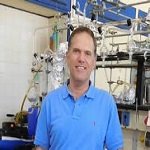

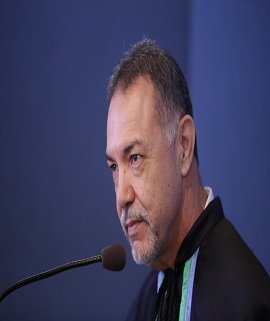
Professor Paulo Cesar De Morais (H60), PhD, was full Professor of Physics at the University of Brasilia (UnB) – Brazil up to 2013. Appointed as UnB’s (Brazil) Emeritus Professor (2014);Visiting Professor at the Huazhong University of Science and Technology (HUST) – China (2012-2015); Distinguished Professor at the Anhui University (AHU) – China (2016-2019); Full Professor at the Catholic University of Brasília (CUB) – Brazil (2018); CNPq-1A Research Fellow since 2010; 2007 Master Research Prize from UnB. He held two-years (1987-1988) post-doc position with Bell Communications Research, New Jersey – USA and received his Doctoral degree in Solid State Physics (1986) from the Federal University of Minas Gerais (UFMG) – Brazil. With more than 13,000 citations, He has published about 500 papers (Web of Science), presented more than 200 international talks, and filed more than 15 patents.

Changzhi Li is currently a professor in Dalian Institute of Chemical Physics (DICP), from where he received Ph.D. degree in 2009 under the supervision of Prof. Zongbao (kent) Zhao. Then he joined Prof. Tao Zhang's group where he was promoted to a full professor in 2019. The overarching theme of his research program is biomass catalytic conversion. He has published over 90 papers on international journals, and has applied for ca. 50 patents, of which, 38 have been authorized in China. His current research focuses on the catalytic valorisation of lignin into value-added chemicals and high-density fuels.
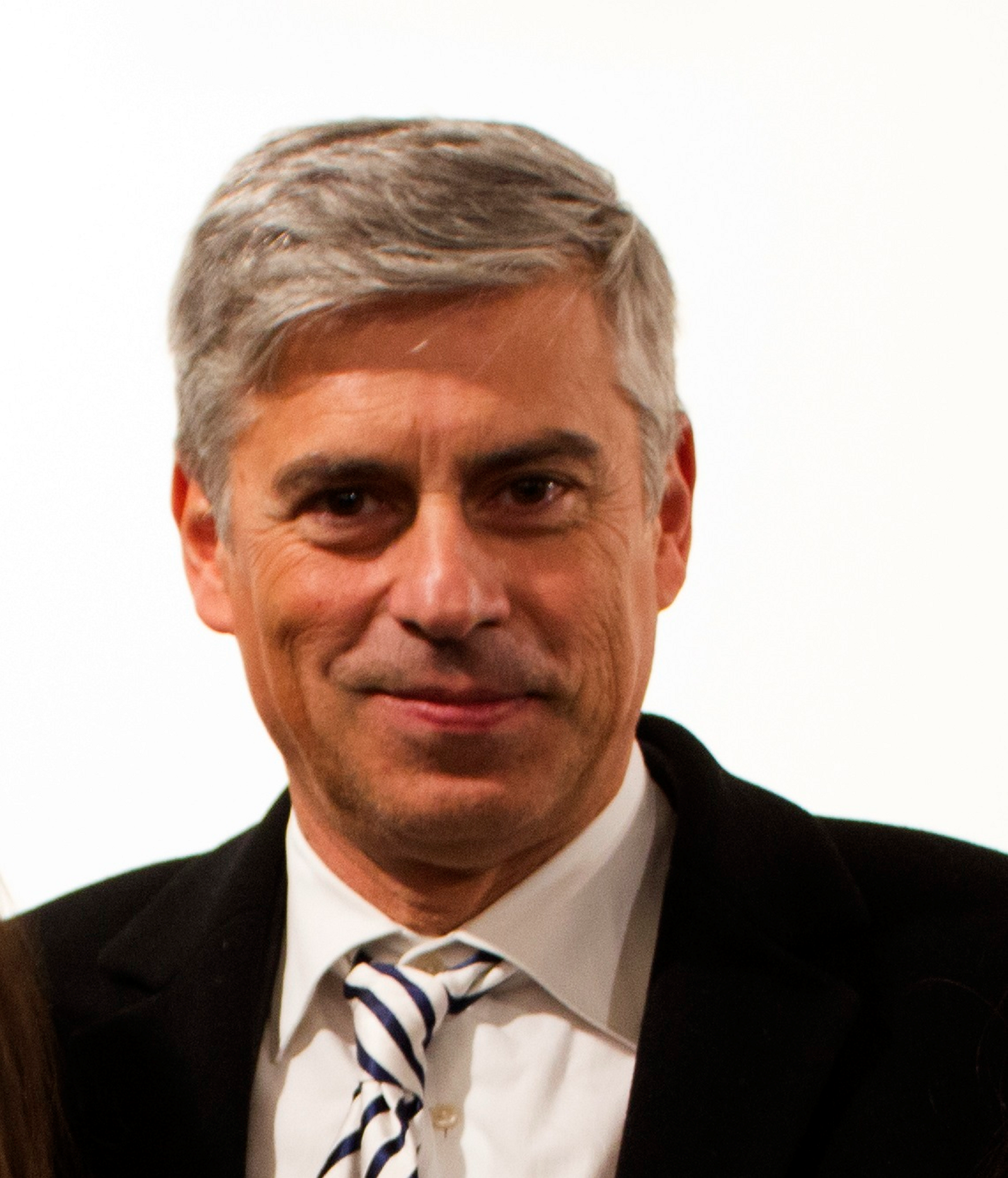
Jorge Lino Alves, Mechanical Engineer, PhD in Materials Science, Full Professor at Faculty of Engineering of University of Porto (FEUP), Portugal. FEUP Director of the Master in Product and Industrial Design (UPorto), Director of DESIGNSTUDIO FEUP and Laboratory of Additive Manufacturing, and Past President of the Portuguese Society of Materials (SPM). Develop research in product development and additive manufacturing. Co-author of 8 books, and more than five hundred papers in journals, book chapters, posters and conferences. Has a registration of a community design or model, and 30 awards in contests. Reviewer for several scientific journals and is Director of the Science and Materials Technology Magazine of SPM.

Dr. Daniel Grande is a CNRS research director at Charles Sadron Institute (ICS) in Strasbourg where he moved in January 2024. Before his present position, he acted as the director of the ICMPE in Thiais for the period 2020-2023. He received his Ph.D. degree in polymer chemistry from the University of Bordeaux (France) and the University of Coahuila (Mexico) in 1998, and then he spent about two years at Emory University (Atlanta, USA) as a NIH post-doctoral fellow. His research interests include the development of functional polymer materials with a broad range of porosity scales, including nanoporous materials with controlled porosity and chemical functionality derived from polymer networks and nanostructured block copolymers, doubly porous materials with nano- and macro-porosity, as well as hybrid macroporous materials based on polymer fibers and inorganic nanoparticles.

Prof. Regina Jeziorska has received the M.Sc. (1984), the Ph.D. (1998and the D.Sc. (2008) degrees from the Warsaw University of Technology, Industrial Chemistry Research Institute and Lublin University of Technology, Poland, respectively. Currently she leads a group of researchers working on various aspects of recycling and reactive extrusion of bio(polymers), nanocomposites and their applications, and polymer technology. She is the author and co-author of over 150 publications, including 56 from the Philadelphia list, over 90 papers at national and international conferences and over 40 patents.

Magnus S Magnusson is a Research Professor in the University of Iceland. He has completed his PhD in 1983 from the University of Copenhagen. He is the Codirector of a DNA analysis project. He has numerous papers and invited talks at international mathematical, neuroscience, proteomics, bioinformatics and science of religion conferences and at leading universities in Europe, USA and Japan. He was the Deputy Director (1983-1988) in the Museum of Mankind, Museum of Natural History, Paris. Then, he was repeatedly invited as temporary Professor in Psychology and Ethology (biology of behavior) at the University of Paris (V, VIII &XIII). He is the Founder and Director of the Human Behavior Laboratory, University of Iceland. He formally collaborated with 32 European and American universities based on “Magnusson’s analytical model” initiated at University René Descartes Paris V, Sorbonne, in 1995.
Dr. Cheng Lin is dedicated to the research of shape memory polymer composites and 4D printed smart medical devices. She has published 15 SCI papers as first/crresponding author in journals such as Advanced Functional Materials (IF=18.5), Small (IF=13), Advanced Healthcare Materials (IF=10), Composites Part B: Engineering (IF=12.7) etc. She received four authorized national invention patents. She was invited to be the Secretary General of the 1st National Conference on Smart Materials and Structural Systems, Committee Member and Session Chair of the 32nd International Conference on Adaptive Structures and Technologies , and Committee expert of the Additive Manufacturing Medical Device Professional Committee of China Medical Device Industry Association.
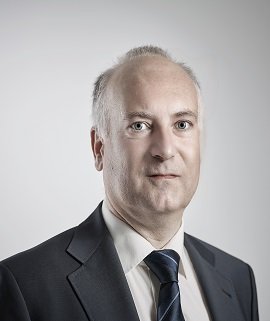
Thomas holds an PhD in Chemistry and Material Science of the university of Wuerzburg, Germany. After a postdoc at University of Durham in UK he started his international industrial career at adidas in China, then worked many year as Innovation Director at TIGER Coatings in Austria and since 2014 he is Director of Innovation & Creation at Fujian Huafeng New Materials Co Ltd. in China. During his scientific and industrial career he came and well known expert on coating and printing materials and technologies. He is the creator of the HAPTIC brand with enormous success in the athletic footwear industry.

Dr. Atsushi Tahara is an assistant professor (PI) at Frontier Research Institute for Interdisciplinary Sciences (FRIS), Tohoku University in Japan where he moved in April 2021. Before his present position, he worked as an assistant professor at Institute for Materials Chemistry and Engineering (IMCE), Kyushu University in Japan for the period April 2013 – March 2021. He received his Ph.D. degree in engineering from Tokyo Institute of Technology in March 2013. His research interests include (1) Transformation of simple hydrocarbons by using transition metal complexes (Angew. Chem. Int. Ed. 2010), (2) Replacement of noble metals to base metals in the catalysts for the reduction reaction (J. Am. Chem. Soc. 2014), (3) Utilization of biomass compounds (Polym. Chem. 2025).
Xun You (Josef You) holds an PhD in Organic Chemistry of the University of Science and Technology of China. After over 7 years’ R&D work on the innovation of waterborne/bio-based coating technology in Fujian SKSHU Paint Co., Ltd. and Huafeng New Materials Co., Ltd. In China, he started research work on the industrialization and applications of 5-hydromethylfurfural in Zhejiang Sugarenergy Technology Co., Ltd. as R&D Director.

Amir R. Masoodi, Ph.D., has received his Ph.D. degree in structural engineering (computational mechanics) from Ferdowsi University of Mashhad. He also passed a short research period as a research visitor at the Department of Applied Mechanics in TU Delft from September 2018 until March 2019. He was selected as a member of the National Elite Foundation of Iran from September 2017. He currently serves as reviewer for more than 100 scientific journals indexed by web of science and Scopus. He is also a member of the editorial board in Journal of BMC research notes. His h-index is 27 so that he has published more than 70 papers, which have been cited more than 1500 times.

Malcolm Kelland (BA and D. Phil in chemistry at Oxford University, UK), worked at NORCE, Norway for 10 years before becoming Professor of Inorganic Chemistry at the University of Stavanger, Norway in 2001. He has worked on various oilfield chemical projects and other crystal growth inhibition projects involving polymers for 33 years especially low dosage hydrate inhibitors (LDHIs), some of which have been commercialised. A spin-off company, Eco Inhibitors, from his research was sold in 2019. He is the sole author of the handbook “Production Chemicals for the Oil and Gas Industry”. He has published over 230 papers, been awarded over 10 patents and several industrial prizes for his innovative work.
Wei Tian completed his Ph.D. from Northwestern Polytechnical University in 2009 under the supervision of Professor Xiaodong Fan. He pursued his research work in polymer chemistry as a postdoctoral researcher at the same university until 2010. Following academic appointments at Northwestern Polytechnical University, he joined the Department of Industrial and Systems Engineering at The Hong Kong Polytechnic University as a research associate. He came back to Northwestern Polytechnical University in 2011, and became a full professor in 2014. His scientific interests focus on supramolecular hyperbranched polymers and macromolecular self-assembly.
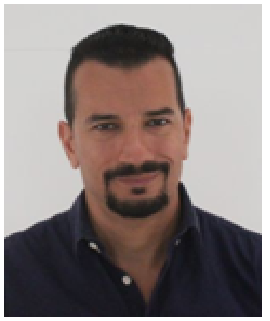
Henoc Perez, a distinguished chemist, completed his academic journey at the University of Alicante, where he earned both his Degree and PhD in Chemistry, focusing on New Strategies for the Synthesis of Organic Compounds. This specialization was achieved under the tutelage of the Organic Chemistry Department in 2010. Since 2014, Dr. Perez has been a pivotal member of the Advanced Materials and Technology department at INESCOP in Elda, Alicante, Spain. His research is at the forefront of developing new and innovative methodologies for the extraction of bioactive products from animal and vegetable by-products. His work spans various industrial applications, including sustainable biomaterials, materials functionalization, biostimulants for plants, retanning agents for leather, and the integration of bioproducts into new materials, significantly contributing to the field of sustainable industrial processes.
Choose Your Pricing That Fits You Best
Budapest, the capital of Hungary, is a captivating city that straddles the Danube River in Central Europe. It is renowned for its stunning architecture, rich history, and vibrant cultural scene. The city is divided into two parts, Buda and Pest, each with its unique character and attractions.